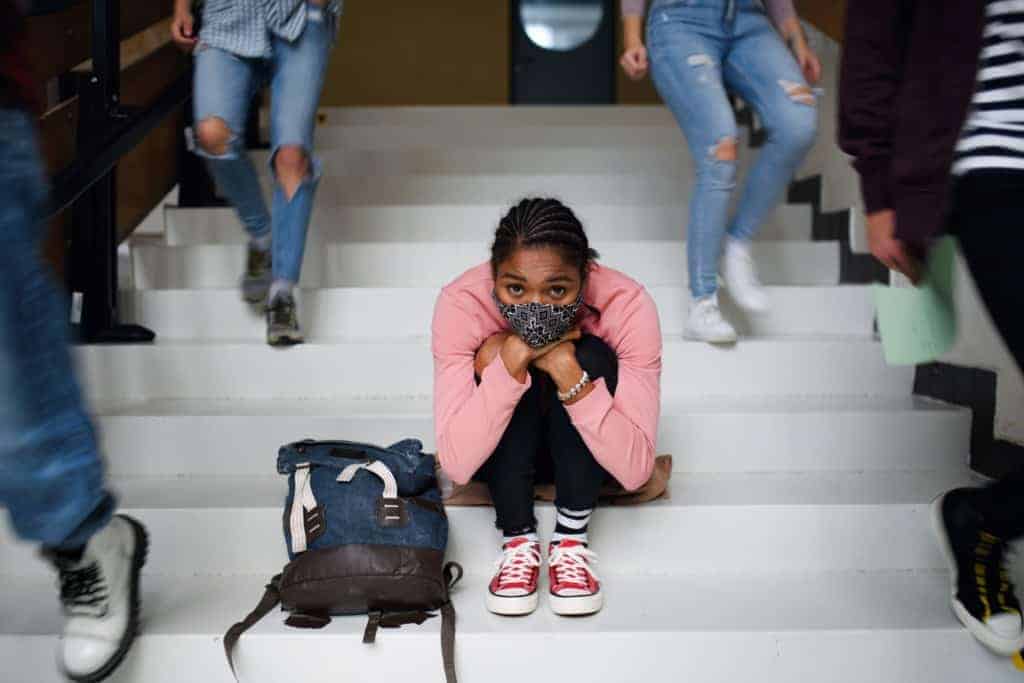Responding to the Mental Health Crisis

In February of 2020, the Island Psychiatry & Behavioral Health team began seeing a spike in phone calls, patient concerns and requests for appointments as the news of COVID-19 began to spread across the nation. In March of 2020, clinics across the state reduced hours, limited services and began planning for the unknown. In just a few short weeks, the SARS-CoV2 was at our doors. Island Health acted quickly and introduced telemedicine in all service lines which provided the ability to safely treat patients. As the months carry on and COVID-19 continues to make its way through the community, the psychiatric clinic works diligently to care courageously for our patients and find ways to deliver care despite the impacts of the pandemic.
Island Health continues to provide mental health services safely by providing:
- Telehealth appointments for medication management and therapy;
- Safe waiting rooms that include social distancing, routine cleaning and masking;
- Expansion of services for the Anacortes School District School Intervention Program (SIP); and
Expansion of services for the Behavioral Health Integration Program (BHIP). Recent research published by the Washington State Department of Health shows several behavioral health symptoms and diagnoses associated with COVID-19 including:
- Post-COVID-19 psychosis;
- Increased anxiety symptoms and diagnoses;
- Increased risk for Post-traumatic Stress Disorder (PTSD);
- Increased depressive symptoms and diagnoses; and
- Increased risks associated with a decline in cognitive functioning with long COVID-19.
Additionally, the Island Hospital Emergency Department has seen an increase in psychiatric related emergencies including behavioral incidences, panic attacks, suicidal ideation and suicide attempts. The pandemic has left its mark physically and mentally in our community.
WHERE TO START WITH MENTAL HEALTH CONCERNS
As we continue to battle COVID-19 in 2022, Island Psychiatry & Behavioral Health is focused on using evidence-based practices to increase and improve access to mental health care. The collaboration between the Island Psychiatry & Behavioral Health team and Island Health’s primary care clinics continues to strengthen as we explore and implement new ways of working together. This year we are focused on strengthening the collaboration via referrals between primary care and psychiatric providers. Our goal is to focus on early intervention starting with the primary care provider. If you are not in crisis but are concerned about your mental health, please talk to your primary care provider about next steps.
If you or someone you love is in crisis, call 800.584.3578 to speak with a local crisis team.
SUICIDALITY AMONG THE YOUTH AND WHAT TO LOOK FOR
The United States has seen an increase in suicidality and suicide attempts over the last two years. Nationally, suicide is the third leading cause of death among ages 10-24. In the state of Washington, it is the second leading cause of death among the same age group. Firearms are the leading method. In the face of the COVID-19 pandemic, the mental health of our youth is declining. Children and teens may respond differently to disasters than adults, leaving them feeling isolated and voiceless. Understanding some of these responses is the first step to preventing self-harm and death by suicide.
Island Psychiatry & Behavioral Health works closely with Anacortes School District in the School Intervention Program (SIP). If you would like to learn more about this program, please reach out to your student’s academic counselor.
You may start to see changes in these areas that increase over time.
PHYSICAL SYMPTOMS
• New headaches
• New stomachaches
• Fatigue
• Decreased appetite
CHANGES IN MOOD
• New or worsening anxiety
• Feeling insecure, afraid, angry,
• Sad and/or worried
• Mood changes interfering with daily activities
THOUGHT CONTENT
• Difficulty concentrating
• Loss of trust in adults
• Loss of feeling safe and secure
• Loss of interest in regular activities
• Statements about self-harm, loss of hope for the future or seeing no point in the future
RELATIONSHIP CHANGES
• Social withdrawal
• Saying goodbye to friends, ending friendships
• Giving away personal or meaningful belongings
While these responses may occur without accompanying suicidality, it is important to talk to your child. Your conversation may save a life.
HERE ARE SOME TIPS TO GET STARTED:
Provide a safe judgment-free environment
- Avoid drawing conclusions about your child’s behavior-help them reflect and draw their own conclusions;
- Listen and hear them all the way out before speaking; Avoid using judgmental language such as, “good,” “bad,” “right” and “wrong”; and
- DO use words and phrases such as, “interesting” and “tell me more”.
Provide understanding and empathy
- Acknowledge and affirm that only the individual can completely understand themselves, but you are there to support them;
- Take time to listen and ask questions to gain a deeper understanding; and
- Acknowledge their feelings and actions as their reality, regardless of how you may respond in the same situation.
Provide acceptance
- Understand individuality and accept that they are having their own unique experience, which may be different than your own; and
- Invite them to discuss any challenges with you again in the future.
Be self-aware
The above conversations can be challenging; it is okay to ask yourself if you are in a place to hold space for them.
Mental Health Resources
- Skagit County/Island County/San Juan County Crisis Line: 800.584.3578
- Washington Listens: 833.681.0211. A specialist can help you cope with the stress of COVID-19.
- National Suicide Prevention Lifeline: 800.273.8255 (English) or 888.628.9454 (Español)
- Crisis Connections: 866.427.4747
- Crisis Text Line: Text HOME to 741741
- TeenLink: Call or text 866.833.6546
- Washington Warm Line: 877.500.9276
Published on March 23, 2022
